Cells: The Basic Units of Life -> lakes
Lakes
A lake is a large body of water that is surrounded by land. It is a type of freshwater ecosystem that can vary in size and depth. Lakes can be formed in different ways, including through glacial activity, volcanic activity, or tectonic processes. They are an important part of the Earth's water cycle and provide habitats for a wide variety of plants and animals.
Key Concepts
- Formation: Lakes can be formed by various geological processes, including glacial, volcanic, and tectonic activity.
- Ecosystem: Lakes support diverse ecosystems, including fish, plants, and other organisms that are adapted to freshwater environments.
- Human Impact: Human activities such as pollution, overfishing, and habitat destruction can have a significant impact on the health of lakes and their ecosystems.
- Importance: Lakes provide important resources such as drinking water, recreational opportunities, and support for agriculture and industry.
Study Guide
- What is a lake and how is it formed?
- Describe the key features of a lake ecosystem.
- How do human activities impact lakes and their ecosystems?
- Explain the importance of lakes for both natural and human environments.
Studying lakes is important not only for understanding natural ecosystems but also for managing and conserving these valuable resources for future generations.
[Lakes] Related Worksheets and Study Guides:
.◂Science Worksheets and Study Guides Sixth Grade. Cells: The Basic Units of Life
Study Guide Cells: The Basic Units of Life
Cells: The Basic Units of Life  Activity Lesson
Activity Lesson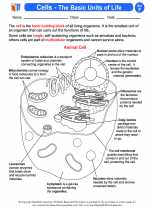 Cells - The Basic Units of Life
Cells - The Basic Units of Life  Worksheet/Answer key
Worksheet/Answer key Cells: The Basic Units of Life
Cells: The Basic Units of Life  Worksheet/Answer key
Worksheet/Answer key Cells: The Basic Units of Life
Cells: The Basic Units of Life  Worksheet/Answer key
Worksheet/Answer key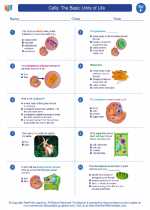 Cells: The Basic Units of Life
Cells: The Basic Units of Life  Vocabulary/Answer key
Vocabulary/Answer key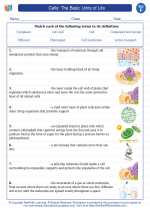 Cells: The Basic Units of Life
Cells: The Basic Units of Life  Vocabulary/Answer key
Vocabulary/Answer key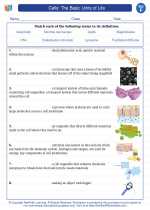 Cells: The Basic Units of Life
Cells: The Basic Units of Life  Vocabulary/Answer key
Vocabulary/Answer key Cells: The Basic Units of Life
Cells: The Basic Units of Life  Vocabulary/Answer key
Vocabulary/Answer key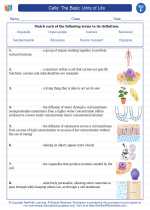 Cells: The Basic Units of Life
Cells: The Basic Units of Life  Vocabulary/Answer key
Vocabulary/Answer key Cells: The Basic Units of Life
Cells: The Basic Units of Life 

 Activity Lesson
Activity Lesson
 Worksheet/Answer key
Worksheet/Answer key
 Worksheet/Answer key
Worksheet/Answer key
 Worksheet/Answer key
Worksheet/Answer key
 Vocabulary/Answer key
Vocabulary/Answer key
 Vocabulary/Answer key
Vocabulary/Answer key
 Vocabulary/Answer key
Vocabulary/Answer key
 Vocabulary/Answer key
Vocabulary/Answer key
 Vocabulary/Answer key
Vocabulary/Answer key

The resources above cover the following skills:
LIFE SCIENCE
From Molecules to Organisms: Structures and Processes
Students who demonstrate understanding can:
Conduct an investigation to provide evidence that living things are made of cells; either one cell or many different numbers and types of cells.
Develop and use a model to describe the function of a cell as a whole and ways parts of cells contribute to the function.
Use argument supported by evidence for how the body is a system of interacting subsystems composed of groups of cells.